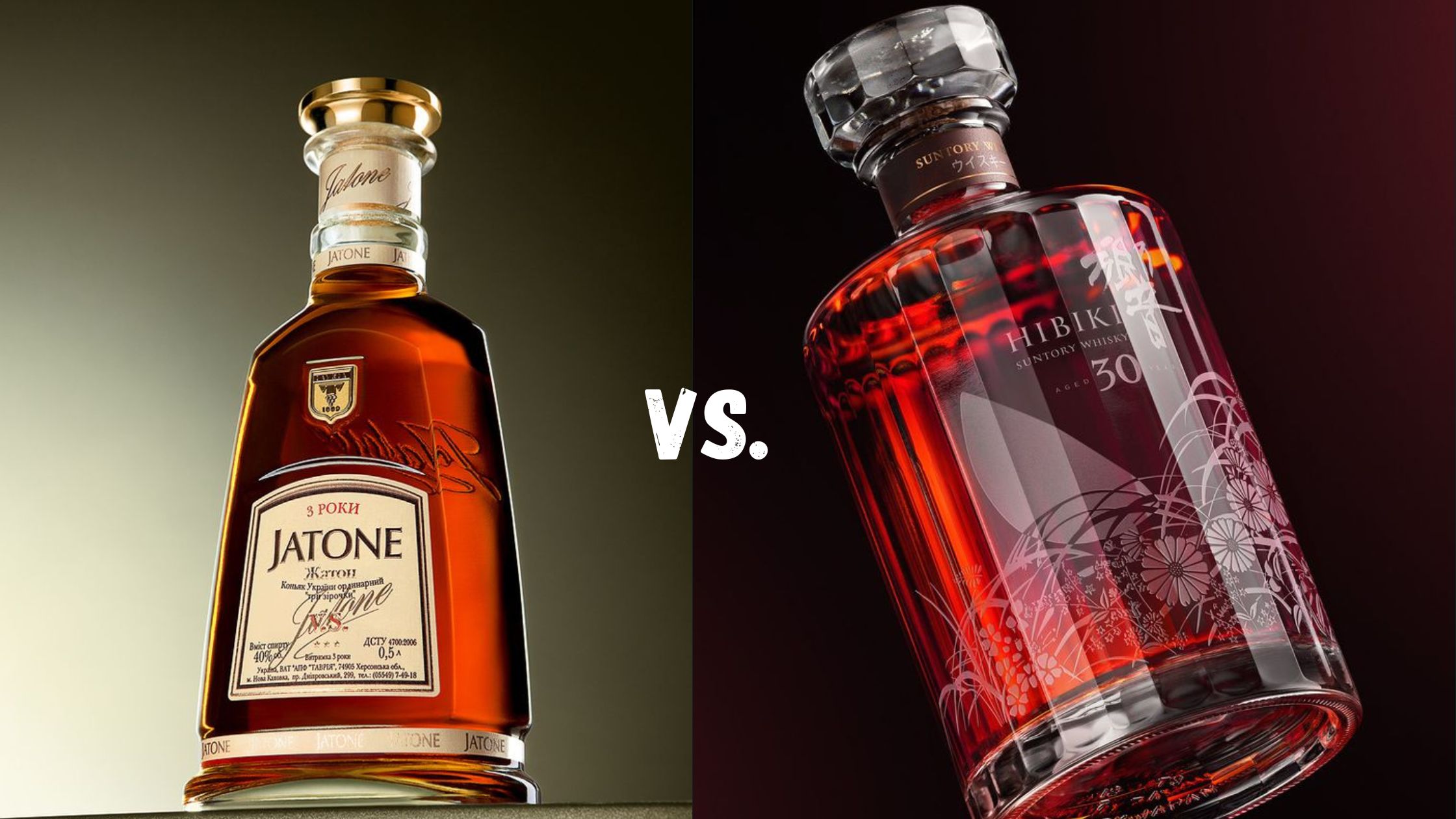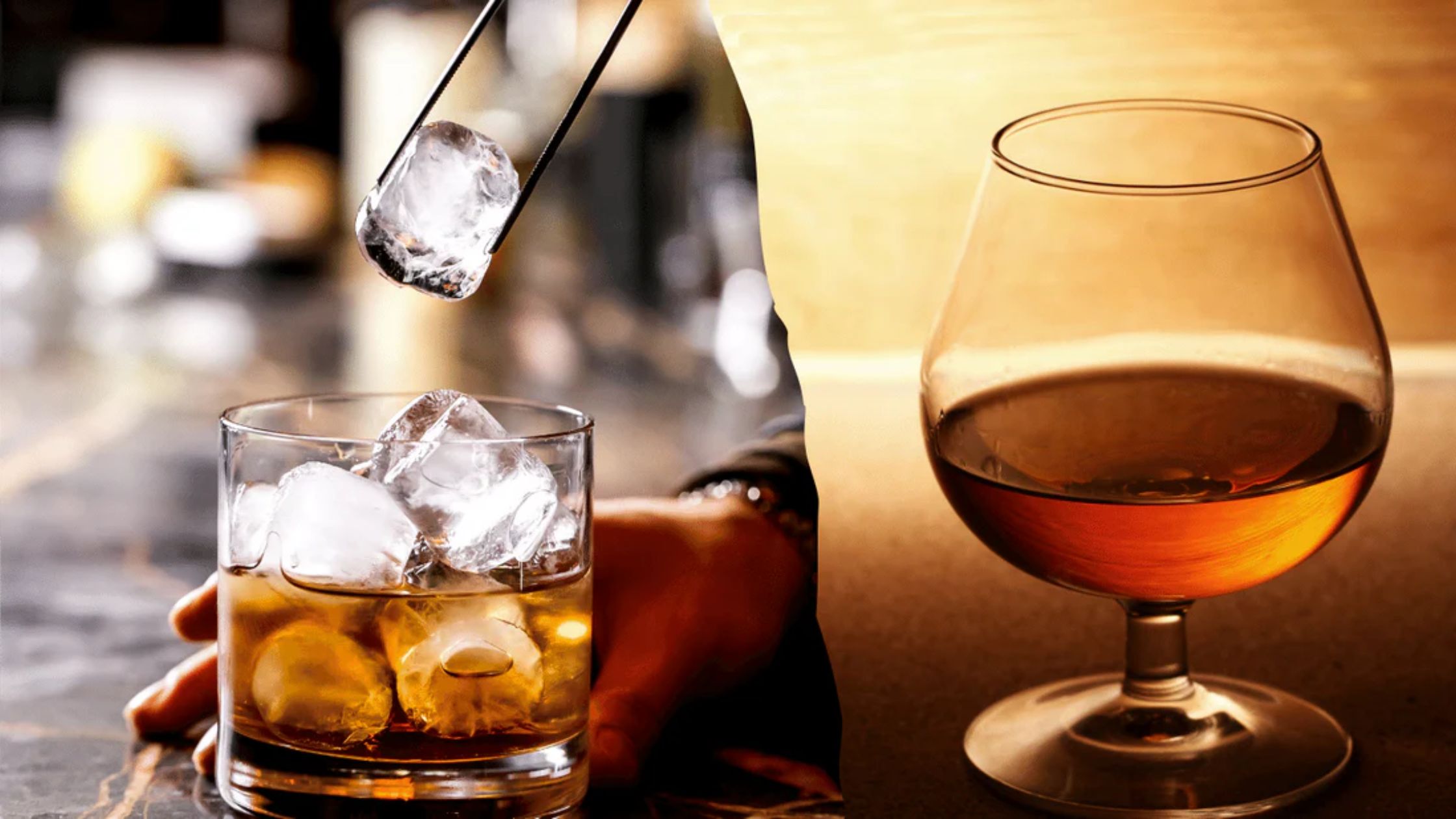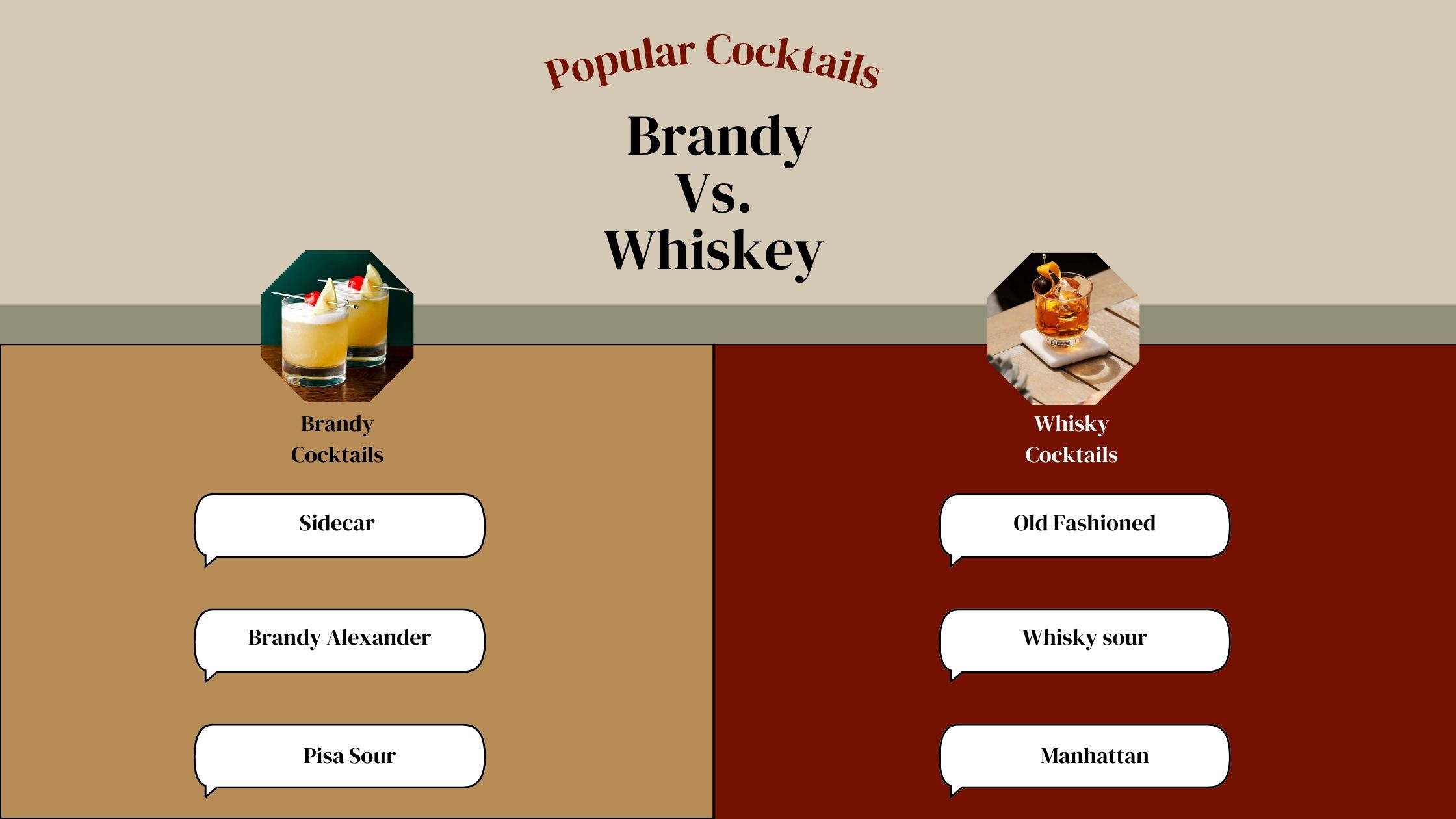Rockford Reserve vs Oaksmith Gold: Taste Notes and Price Comparison
2026-02-13

Whiskey and brandy both boast long histories and significant cultural impact; their histories go back centuries! Both iconic beverages have won over connoisseurs as well as casual drinkers alike.
Although both spirits belong to the distillate category, brandy and whiskey differ significantly in many aspects—their base ingredients, flavor profiles, production methods, and source regions all set them apart from one another.
What exactly sets brandy and whiskey apart, and how do their differences impact drinking them?
In this blog post, we'll delve deep into their individual characteristics, production processes, flavors, and preferences, hopefully leaving you better equipped to choose one or the other according to your own taste and when best to enjoy each.
To fully appreciate the differences between these two spirits, it can be useful to understand their roots.
Brandy has been produced for centuries, dating back to ancient Greek and Roman civilizations. The word "brandy" itself comes from Dutch "brandewijn," or burned wine, which makes sense considering this spirit is typically made from fermented fruit juices derived from grapes.
While brandy production occurs worldwide today, its most famed varieties can be found in France's wine-producing regions; Cognac and Armagnac in particular are protected by stringent regulations designed to maintain the quality and authenticity of their respective brands.
Whiskey has a more complicated history, with multiple countries claiming that it was their invention. The term "whiskey" stems from Irish and Scottish terms "Uisce Beatha," meaning "water of life."
While its exact source remains elusive, many believe that whiskey was first produced in Ireland or Scotland, with each country producing their own distinct style of whiskey production. Whiskey can be produced from grains such as barley, corn, rye and wheat, as well as regional variations such as Scotch, Bourbon or Irish versions
The difference between brandy and whiskey lies in their respective base ingredients.
Brandy is made by fermenting fruit juice, most frequently grapes; however, other fruits such as apples, pears, and peaches can also be used to produce brandy. Once fermented, this fruit juice is then distilled to create the spirit before being aged in wooden barrels for optimal flavor development.
Whiskey, on the other hand, is produced using fermented grain mashing that has been heated. Barley (for Scotch and Irish whiskey production), corn (Bourbon production), rye (Rye whiskey production), and wheat are all commonly used in whiskey production; during fermentation, the starches in these grains are transformed into sugar which is later distilled into alcohol for distillation. Whiskey may also be aged in wooden barrels—usually oak—to develop unique flavors.
| "Fun Fact: The type of fruit or grain used in production significantly impacts the flavor profile of the final product." |
Distillation processes differ between brandy and whiskey significantly, providing another area in which their respective characteristics differ greatly.
Brandy is typically produced at lower proof than whiskey, creating a smoother, fruitier spirit. Distillation processes tend to be relatively gentle, allowing the fruity and floral notes of its base ingredients to shine through during distillation.
Once completed, brandy is aged in wooden casks—usually oak—adding depth and complexity to its taste; most brandies, particularly Cognacs, require several years before becoming suitable for consumption.
Whiskey is often produced at higher proof levels, lending it a stronger and more robust character. Distillation at a higher proof also allows more of its grain flavors to remain, contributing to its robust taste.
Like brandy, whiskey ages in wooden barrels; its maturation process tends to produce flavors like oak, vanilla, caramel, and sometimes even smokiness depending on both type and region of production.

Flavor wise, brandy and whiskey differ significantly.
Brandy can often be described as more fruit-forward and sweet than whiskey. The flavors come from using fruit juice in its production, and its aging process often imparts notes of vanilla, caramel, dried fruits (such as raisins and prunes), and spices, with Cognac being particularly notable for this!
Cognac boasts elegant yet complex profiles featuring oak wood tannins with dried fruits like raisins and prunes, vanilla bean notes, and floral aromas; other types such as Armagnac, have more rustic characteristics reminiscent of prunes or figs!
On the other hand, whiskey offers an expansive spectrum of flavors. Bourbon boasts its higher corn content to produce sweeter notes of caramel, vanilla, and oak; Rye whiskey (made primarily from rye grain) tends to be pepperier; Scotch is best known for its peaty varieties from Islay that boast smokey medicinal flavors, while Speyside Scotch provides lighter fruitier notes like apple honey malt.
| "Tasting Tip: If you enjoy lighter, fruitier flavors, go for brandy. If you prefer bold and complex flavors, whiskey might be your best choice" |
Brandy and whiskey production both have strong links to their regions of production, and its location can have an enormous impact on its flavor and character.
Brandy production centers around wine-growing regions such as France, Spain, and Italy. Most famous brandies hail from France's Cognac and Armagnac regions; strict guidelines govern production from grape varieties used through distillation and aging processes. Beyond France's borders lies Spain with their famous Brandy de Jerez aged in sherry casks for an extra unique layer of flavor; other regions like California and South America also produce high-quality brandies from local fruits.
Whiskey has an international appeal; in the US it takes the form of Bourbon and Tennessee whiskey; Scotland produces Scotch whisky, while Ireland produces several styles, including smooth Irish whiskey, while Canada boasts its Rye variety.
Furthermore, Japan is increasingly recognized as producing top-quality whiskies comparable to those from Scotland thanks to their intricate craftsmanship and commitment to detail.
Brandy and whiskey are both excellent for sipping neat or using in cocktails.

Brandy Cocktails:
Learn More : Cocktail Recipes
Whiskey Cocktails:
|
"Mixology Tip: If you want a strong, spirit-forward cocktail, whiskey is the way to go. For a smooth, sophisticated drink, try a brandy-based cocktail!" |
Choose between brandy and whiskey according to your own personal taste, depending on your mood, occasion, and individual preferences. Both spirits provide distinct tastes and experiences and your decision may depend on which is better suited to the moment and occasion.
Brandy is the ideal spirit for those who appreciate smooth, fruitier spirits with subtle sweetness. Perfect for sipping after meals or mixing into classic cocktails such as the Sidecar or Pisco Sour, brandy's elegance makes it a favorite among connoisseurs of refined, aged spirits with complex flavors.
Whiskey, on the other hand, is an exceptionally versatile spirit that ranges from smooth and sweet to bold and smoky in flavor. Perfect for creating classic Old Fashioneds or Manhattans as well as refreshing whiskey sours, whiskey enthusiasts appreciate its rich history, regional diversity, and wide range of flavor profiles it provides.
No matter your taste preference, both brandy and whiskey offer unique characteristics that are sure to please. By understanding their individual bases ingredients, distillation methods, or flavor profiles - be it their base ingredients, distillation processes or flavor profiles - you can make an informed choice when picking bottles for your bar or planning cocktails! Welcome to the world of brandy vs whiskey; may your next drink be as enjoyable as its spirit itself!